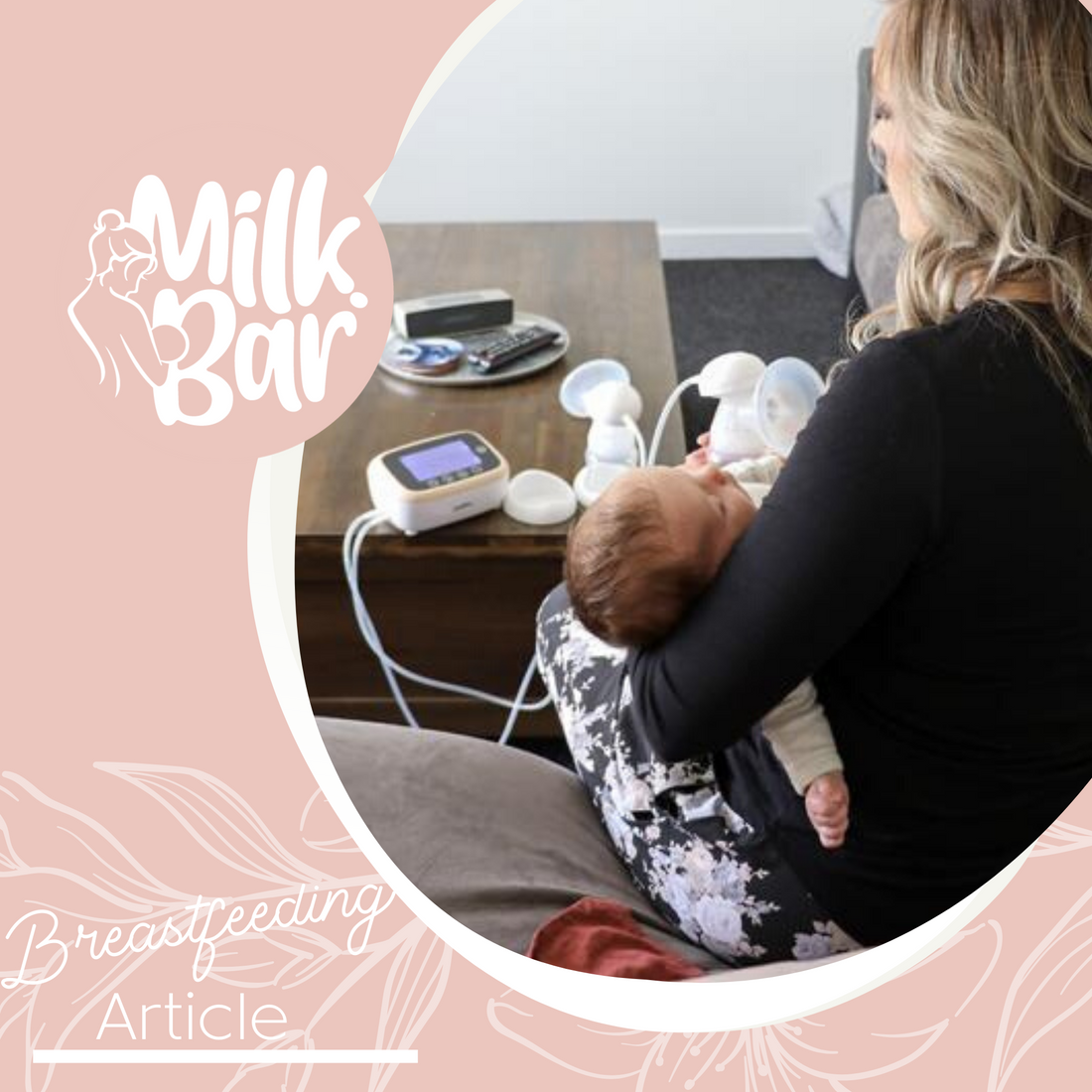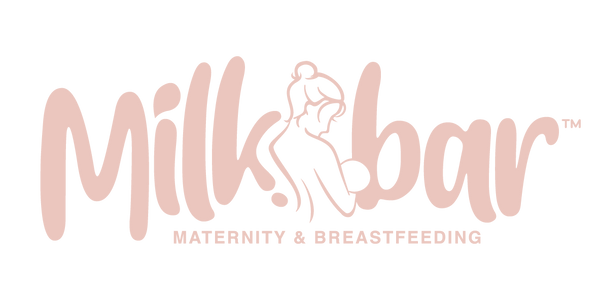
Your Guide to Exclusive Pumping
Share
Sometimes, despite our hopes or best intentions, our experience with breastfeeding doesn’t quite work out the way we had planned. For whatever reason, whether you’re unable to nurse, your baby won’t latch, you’re facing separation from your baby or need to return to work, exclusive pumping is a good alternative for mothers who still want to provide the nourishment of breastmilk.
I’ve put together my tips to help mums through their journey with exclusive breast pumping and help answer any concerns you may have about deciding to exclusively breast pump!Acknowledge your emotions
Before we even get to the practicalities of pumping, I think it’s a good idea to acknowledge the emotional side of things too. I’m not going to lie, at first you can feel like a literal milk machine, constantly hooked up to your pump. Depending on your circumstances, you may also be feeling disappointed, guilty, or even scared if your baby is underweight or facing challenges in NICU. But you will start to settle in to a routine, and bottle feeding your baby can still be an opportunity for you to bond. You are still providing precious nourishment to your baby, and spending that peaceful time together. On the flipside, remember that down the track you also have opportunities to take a much-needed break, and leave the bottle feeding to your partner or parents!
What you will need
First of all, you need to ensure you’ve got a quality electric breast pump that can help you increase and maintain your supply - a double pump is going to be a huge timesaver. OK, so I hate to drop in a promo so soon into the piece, but we’ve heard from so many mothers that our Milkbar Advanced Flow Breast Pump has helped them boost supply and express more milk than ever before. Whatever you choose, getting the right pump for you is the first step.It’s also handy to have a hands-free pumping bra. You’re going to spend a lot of time expressing - the last thing you want to do is to have to hold on to the pumps each time. Stock up with plenty of bottles and necessary accessories. This will save you have to wash bottles constantly, and allow you to store milk while you’re on the go.
When to express and how often
As an average newborn baby will nurse around 8 to 12 times in a 24 hour period, it’s recommended you also attempt to match this routine, however some mothers will prefer to pump to a set schedule. On average, it means pumping around every two hours. As your baby gets older, this schedule will reduce.You’ll likely need to express for around 15-20 minutes (each side); even if you don’t have milk flowing that whole time, it’s important for nipple stimulation. If your supply is good, you can probably aim for around 7 times a day, or if it is lower, you may need to try for around 10.
Consistency is key
Most advice out there around increasing supply is geared towards women who are combining pumping with breastfeeding, and encourages them to put baby to breast often. If you’re exclusively pumping, you don’t have this luxury. This is where consistency in your routine is crucial. I realise this is a challenge with a newborn but is important for maximising supply and minimising the likelihood of challenges like blocked ducts. As your baby gets older (around 3-4 months), sticking to a schedule is less important, as long as you’re still getting in your number of pumping sessions, and minutes.How much milk you should express
On average, a newborn should be feeding around 45-90ml per feed, but this can vary. Recent research on exclusively breastfed babies suggests they’ll take in an average of 750ml per day between 1 and 6 months old, but it could be anywhere between 570-900ml per day.If you’re worried about your supply, I’ve also put together these tips on how to increase your breast milk supply. If, on the other hand, you’re finding that you producing too much breast milk, you can start to decrease the number of pumps (or you could also consider donating your breast milk!).
Share your story
Be open about your journey and experiences with exclusive breast pumping. So many mothers don’t realise that this is an option and give up on providing their baby with breast milk. It’s important to know that this option exists and it is possible to continue to provide your baby with breast milk for longer!If you want to find some more support and other mums to bounce ideas, advice, laughs and questions around with - come join us in Milkbar Mum Chat on Facebook, together, we've got this!
xx Laura

1 comment
Thankyou so much for your articles and info. I am considering moving to pumping at this time as it seems to be harder to buy formula during lock down either instore and online. I breast feed mainly at night, so would definately consider pumping to substitute some formula feeds.